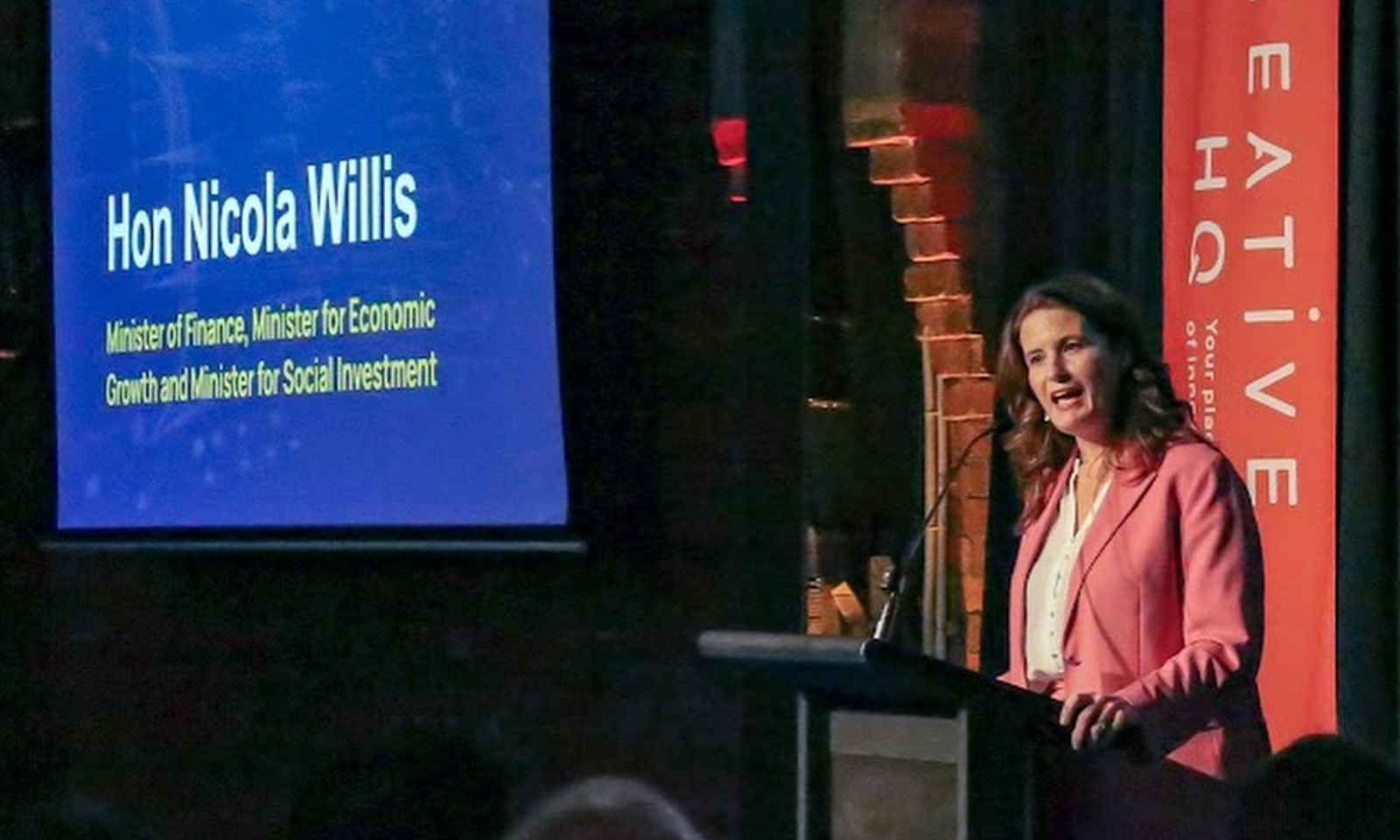

Prime Minister Christopher Luxon (left) and Labour Leader Chris Hipkins.
Photo/Supplied
Luxon, Hipkins spar over pay equity law and economic priorities
Both leaders vie for the support of Pacific communities, emphasising their visions for fairer outcomes.



Pokies, stigma and silence: Gambling campaign calls families to Lead with Love

Cook Islands diaspora drives mental health initiative for better care

Dilworth Basketball: A journey of dedication and team spirit awaits NZ School Nationals


Kiwi sports icons back Dame Noeline Taurua amid netball conflict and coaching ouster

Pokies, stigma and silence: Gambling campaign calls families to Lead with Love

Cook Islands diaspora drives mental health initiative for better care

Dilworth Basketball: A journey of dedication and team spirit awaits NZ School Nationals
The political battle over pay equity is heating up as Prime Minister Christopher Luxon and Labour Leader Chris Hipkins clash over the Government's controversial law changes.
During an appearance on Pacific Mornings, Luxon denied Labour’s claim that his administration was implementing a pay cut.
“What we're doing is we're fixing up a law that's become quite unworkable and also quite unaffordable, and that's called pay equity,” Luxon told William Terite.
The Equal Pay Amendment bill passed all stages in Parliament last week, introducing changes to how individuals can request pay equity.
Hipkins also told Terite that he strongly opposes the law change, accusing Luxon’s government of cancelling "33 active pay equity claims” and forcing affected workforces, predominantly women, to restart their cases from scratch.
"That's the very clear message Nicola Willis, Christopher Luxon, David Seymour, and Brooke van Velden have sent women all over the country," Hipkins says.
He also denies that the parameters for pay equity claims were too lenient under his administration.
“Ultimately, the challenge that you've got here is that you do need to compare workforces that might not on the surface look directly comparable, because for many of the workforces, many of the professions dominated by women, there aren't direct comparisons of a same workforce that's dominated by men.
“And that's exactly the problem. So what you have to do is ask the question of what is work of equal value, even if the work is different.”
Watch Luxon's full interview here
Luxon assures protections remain through collective bargaining and pay equity claims for Pacific women.
“ I just ask that people really just look at the facts of what we're doing and all we're doing is making it so that the system going forward is workable,” he says.
But Hipkins warns that the law sends a message to Pacific and other vulnerable women that balancing the budget is prioritised over achieving fair pay.
“You're going to have to wait longer, and when you do finally get a pay equity claim settled, you're not going to get as much money because we've decided that balancing the government's budget is more important than paying women properly,” the former prime minister says.
Turning to the upcoming budget, Luxon describes it as a "growth budget”, promising significant investments in health, education, and infrastructure to benefit all communities, including Pacific populations.
“Economic growth is so important because actually, that's how you lift people up, Pasifika, or non-Pasifika, across the whole of the country, by getting them into the economy that's growing where there's opportunity for everybody.”
Watch Hipkins full interview here
Finance Minister Nicola Willis says the upcoming budget is not a “lolly scramble” and will reduce the operating allowance from $2.4 billion to $1.3 billion.
“I know people are still struggling in this economy, that’s why on May 22, the Government will deliver a Budget that continues the work to get the books back in order, while building on the foundations we’ve laid to foster economic growth,” Willis says.
“It will be a responsible Budget that secures New Zealand’s future. This means we will be spending billions less over the forecast period than would have otherwise been the case.”
Hipkins defended Labour’s past spending, arguing that it addressed genuine needs like increased wages for nurses and teachers, and was not "wasteful”.

Finance Minister Nicola Willis announced the operating allowance for the upcoming Budget will be slashed from $2.4 billion to $1.3 billion. Photo/Nicola Willis Facebook
Hipkins also criticises the government's decision to exclude unions from the budget lockup, calling it "petty" and detrimental to informed public debate.
“I think people just make an assumption that because the National Party is full of business people, they're somehow going to be better at managing the country's finances than Labour people are,” the Labour leader says.
“But let's put some facts on the table. Wages grew faster under Labour, the economy grew faster under Labour, the number of jobs in the economy grew faster under Labour, and the number of people unemployed was lower under Labour.”